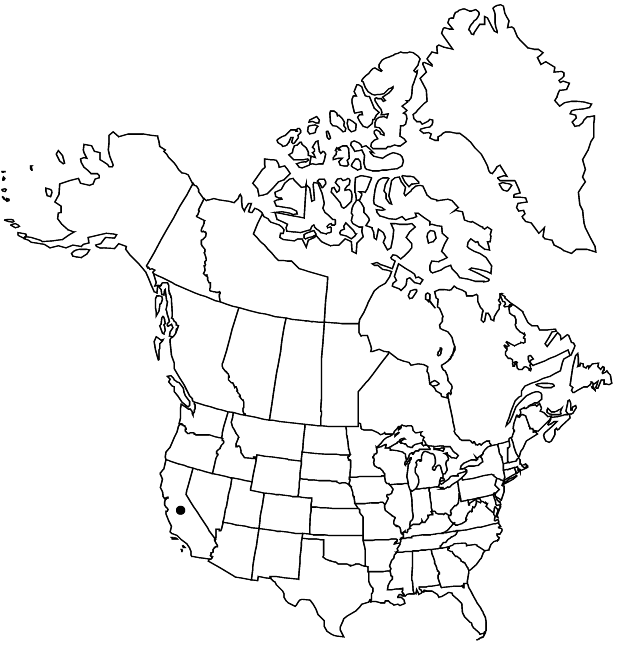Ribes victoris
Pittonia 1: 224. 1888 ,.
Plants 0.5–2 m. Stems erect, pubescent, stipitate-glandular; spines at nodes 1–3, 5–15 mm; prickles on internodes sparse. Leaves: petiole 1.5–5 cm, pubescent, stipitate-glandular; blade round-ovate, 3–5-lobed, cleft 1/4–1/3 to midrib, 1.5–5 cm, base truncate to cordate, surfaces finely pubescent, stipitate-glandular, lobes rounded, margins with few shallow teeth, apex rounded. Inflorescences pendent, solitary flowers or 2-flowered racemes, 3–4 cm, axis pilose, stipitate-glandular. Pedicels not jointed, 3–4 mm, pubescent, stipitate-glandular; bracts lanceolate-ovate, 2–3 mm, pubescent, stipitate-glandular. Flowers: hypanthium greenish white, conic, as wide as long, 3 mm (1/4–1/3 as long as sepals), stipitate-glandular; sepals not overlapping, reflexed, white, pink-tinged at base, oblong-lanceolate, 6–11 mm; petals connivent, erect, white, oblong, inrolled, 3–5 mm; nectary disc not prominent; stamens 2 times as long as petals; filaments linear, ca. 6 mm, glabrous; anthers cream, lanceolate-sagittate, 3 mm, apex mucronate; ovary densely glandular, with longer glandless bristles; styles connate to middle, 9–11 mm, glabrous. Berries palatability not known, golden yellow, globose, 8–10 mm, glandular-bristly.
Phenology: Flowering Apr.
Habitat: Wooded canyon slopes
Elevation: 0-800 m
Discussion
Ribes victoris occurs in the counties around San Francisco Bay north to Sonoma and Lake counties.
Selected References
None.
